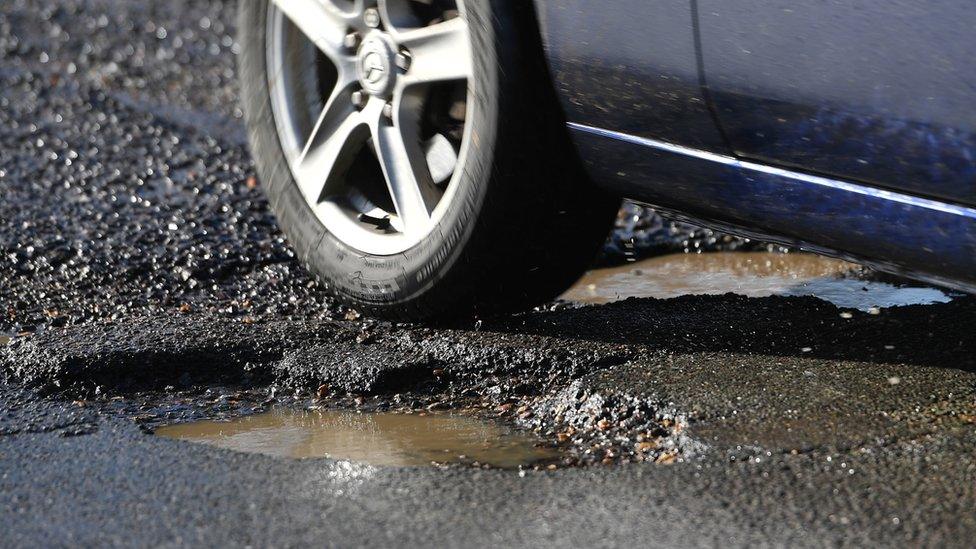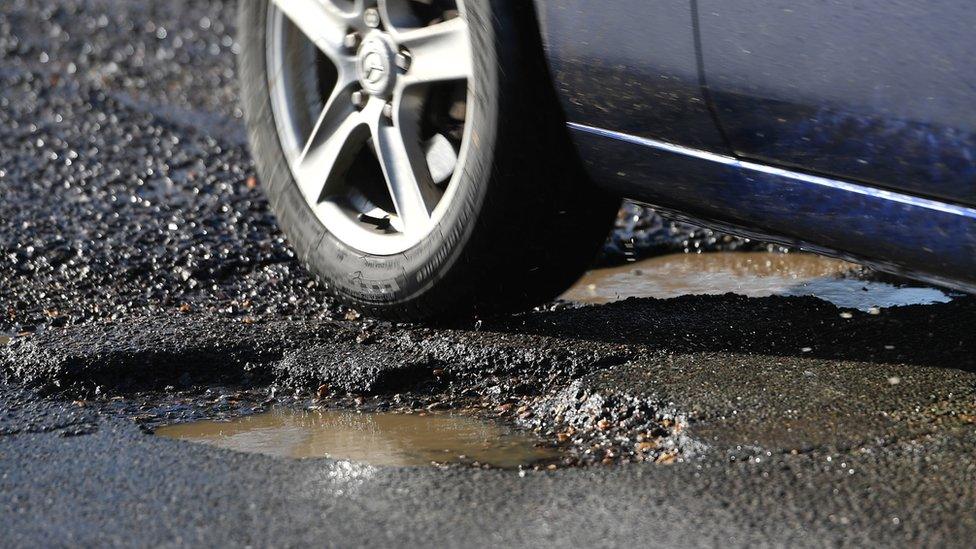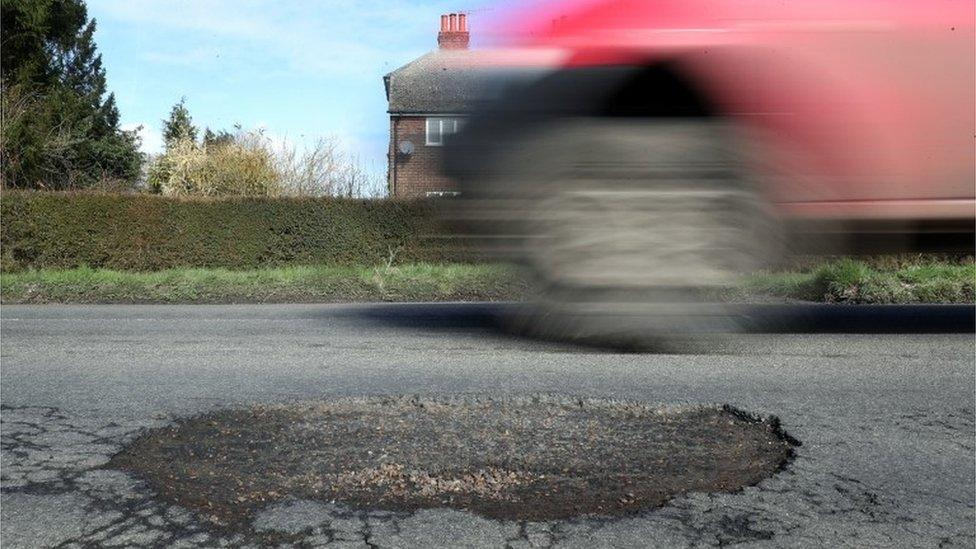Budget 2018: Extra £420m to tackle potholes
- Published

Local councils in England are to get an extra £420m to tackle a growing number of potholes.
Chancellor Philip Hammond will make the announcement in Monday's budget, alongside a £28.8bn fund to upgrade England's motorways.
But the Asphalt Industry Alliance has said, external more than £8bn would be needed for a one-time fix of potholes in England.
Labour criticised the move to invest heavily on major roads, arguing money should be spent on public transport.
In the budget, Mr Hammond will announce £25.5bn for Highways England for major road upgrades between 2020 and 2025 - largely funded by vehicle excise duty.
It will be the first time the tax has been "ring-fenced" for use on the roads. This is in line with a pledge made by former Chancellor George Osborne in 2015.
An extra £3.5bn of "new money" will be allocated to major local routes, which fall under the remits of local councils.
The £420m for potholes is on top of an existing fund of almost £300m.
Alongside extra cash for potholes, councils will be given an extra £150m to improve road junctions on local roads.
Earlier this year drivers breaking down after hitting potholes reached a three-year high, according to the RAC.
A harsh winter and a hot summer has contributed to the number of potholes on England's roads.
RAC chief engineer David Bizley said the extra money being spent on road infrastructure was "good news" for motorists.
But he added the government needed to look at a long-term strategy to "eliminate the backlog in preventative maintenance".
In March Rick Green, the Asphalt Industry Alliance chairman, said a local authority survey indicated "more than £8bn would be needed to carry out a one-time catch up to bring local roads in England up to scratch".
Labour's shadow transport secretary Andy McDonald said major spending on motorways "isn't sustainable".
He said: "With car dependency rising, public transport in decline and local roads in a state of disrepair, ramping up spending on major roads is the wrong decision."
- Published16 July 2018

- Published11 May 2018

- Published17 October 2018
